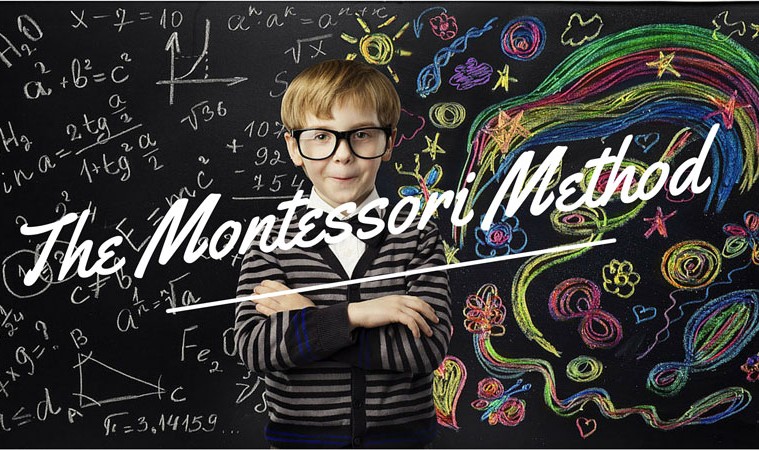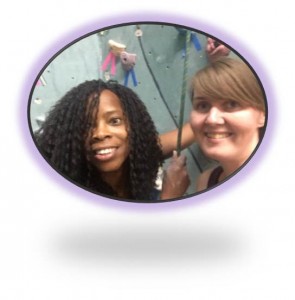The Montessori Teacher
As a mentor teacher, I really want to highlight the voices of my first-year teachers this year. As a result, I will be doing a series of blogs where my mentees get to share their journey and experiences in education. I was inspired by Yolanda Wheelington’s September blog; she wrote about the Montessori classroom. In her blog, she wrote, “Observers of a Montessori classroom are often startled to see the mixture of work and learning styles being implemented simultaneously, yet impressed at the students’ abilities to manipulate and manage the classroom independent of the teacher.” This made me think of Claire, one of my teachers that I am supporting this year. She is not a first year teacher, but this is only her second year teaching at a traditional public school. She is a Montessori teacher trying to get accustomed to her new classroom environment.
It’s been a true joy getting to know Claire and watching her interact with her scholars. As a Montessori teacher, she often allows her scholars to make creative choices about their learning. Her students work in groups and individually to discover and explore the world around them. Claire believes that that experiential learning of a Montessori classroom leads to a deeper and richer understanding of science, mathematics, language, social interactions etc. She is now trying to bring those methods into a more traditional model, but the road has not been easy for her. However, she is persevering and as her mentor, I am trying my best to support her and show her that even though she is in a traditional classroom, she can still use many of the Montessori practices.
I recently sat down with Claire over dinner and we had a great chat. For this blog, I asked her to share her educational experiences thus far as well as her journey as a Montessori teacher. Claire is also from England, so not only is she trying to adjust to a new classroom environment, she is also trying to get acquainted with our American customs.
Meet Claire…in her own words—
“I have been a Montessori teacher for two years. I’ve done a year of teaching middle school and was mentored by Dr. Betsy Coe and I have done a year of upper level (untrained) in a charter school environment. I have also attended AMS (American Montessori Society) conferences over the last year…and have networked consistently since my second year of teaching. I am currently in a traditional environment…I am originally from England and I have spent 10 years in Texas. I was originally pre-med but I kept bombing certain things and realized the medical field just wasn’t for me. I got into teaching through my love for youth leading (faith-based program)…I got into teaching because of this youth group; I was youth leading for a junior high/high school group at a large church in Texas and I did that for 3 ½ years and loved it. What also got me falling in love with teaching was an 8th grade boy I was mentoring as part of my student teaching. Basically, he had failed his 7th grade year, but was allowed to promote. He had to repeat certain classes and was on modified exams. So during this time of working with him and youth leading, I truly understood what it meant to be a teacher. What really helped me connect with teaching in general was making those connections with young people. I found that I had kids in my youth group coming up to me asking me questions about what they should do for college and so forth, and also the young man I was working with ended up passing all of his exams at the end of the year and he was also taken off modified examinations for STAR exams. During this time, I really loved the relationship that was being built through my interactions with these students. I was forming strong bonds with these young people and that’s what really brought me closer to teaching.
As far as Montessori, I did a year in the Wards in Houston and it was a rough year; the assistant principal would watch me teach; she kept telling me that the way I taught did not fit this kind of traditional style, so she ended up sending me to her old boss. Her old boss is an amazing woman who has a drive to make you become the best you can be, so during that year it was a challenge, but it was also great. I found my fit as far as teaching was concern as well as the ethos and method behind Montessori. I find that Montessori is better suited for some kids and it supports the growth mindset. For some parents and families, Montessori takes some adjusting because they have to change their mindset into a more growth mindset rather than the conversations they would have with their child…oh did you get an A or B, why didn’t you get an A this week…I wanted to stay in the Montessori environment but I got rifted from my previous teaching job (cuts) so I came out to Arizona to continue my teaching journey. What I also like about the Montessori process is when you want to get into teaching, you are invited to do an “observation”. I remember being invited to do an observation in an upper elementary environment and a middle school environment, so I went into two classroom spaces and went through the process of observing students; for Montessori, you don’t necessarily observe the teacher, you observe the students. What I saw was a high school/college based level thinking going on for 4th- 6th grade level classroom and also again at the 7th and 8th grade level. I was hooked!
For many teachers, our ultimate goal is to have a self-governing classroom; well, I found that the easiest way to do this is to create a Montessori style environment. I have a second period class right now that is more self-governing than my others. Currently, I do find my transition between Montessori and my current traditional assignment very different. It’s been tough. Right now, I’m struggling building quality relationships with my students because of the 55 minutes class periods. I’m use to seeing the same students every day, all day. Overall, I would love to start a Montessori school within the school district. It would definitely be a 10 year project and I would love to help grow it all the way down to the elementary level! ”
I am sure that there are some areas of Montessori education that teachers in a more traditional school may not be able to implement. For example, multi-age classrooms and flexible scheduling may not be compatible or doable with our current school structure. However, what I love about my work with Claire and the Montessori approach is how it focuses on developing the “whole child,” and that is definitely a philosophy we also find in many of our traditional schools. In Claire’s classroom, if a student is getting distracted or is having trouble focusing, she does not admonish that child. Instead, she tries to re-ignite that child’s interest; Claire problem solves the issue to determine what is confusing the student, or helps the student find an alternate task that’s more appealing. In her new classroom environment, Claire is learning how to incorporate Montessori principles. As her mentor, our talks are centered on the best ways to incorporate these principles as illustrated in Yolanda’s September blogs. This includes providing time for discussion, modeling, practice, and feedback on how to create an environment that is conducive to independent learning. Yolanda said it best when she wrote in her blog, “The truth about Montessori is that it is an appropriate choice for public education because it is based on the natural development of the child from birth to young adulthood. This includes the child sitting in the public classroom. Since we must allocate public funding for education, let’s invest our tax dollars in purposeful education and teacher training that unleashes the human potential.”












Comments 3
Wow! This was an honor to read. I am so thankful to you and to Claire for even considering anything that I write. I encourage Claire in this journey she has taken on and if there is anything I can do to help her, I will. I understand the barriers and frustrations felt when trying to satisfy the requirements of the public sector while honoring the Montessori method and philosophy. From my personal reflection, I would recommend her being allowed 3 hour blocks to teach, even if it will be more than one subject, and include students from consecutive grade levels in her block. This includes no bells/alarms that informs the rest of the school to transition to the next thing. Breaking the 3 hour learning cycle disrupts the natural learning cycle of the child. Next, encourage her to look at the standards across grade levels parallel to her curriculum albums. She should discover, if she has not already, how to bring the standards under Montessori. Doing this can help her meet the state standardsexpectations while supporting the Montessori approach and free her to do her best teaching.
Thank you Yolanda for your thoughts. I will make sure to pass these on to Claire. Claire and I did discuss her moving into “Blended Learning” which we have on my campus (6th through 8th grade). This would be a wonderful fit for her because there are no bells; its 90% hands-on learning (experiential) and self-governing and she would have the same group of kids everyday, all day for the entire school year. These same students usually start blended learning in the 6th grade and return each year until they leave for high school
That is wonderful! Heads up…she may request some specific materials for teaching content and she may have to be a little picky about the quality of the products. Montessori materials are expensive, but there are some companies that make quality products for a more reasonable price. The beauty is that there are usually only one or 2 of the materials ordered for the entire class and they are meant to last multiple years. Therefore, purchasing the materials can be a great investment.